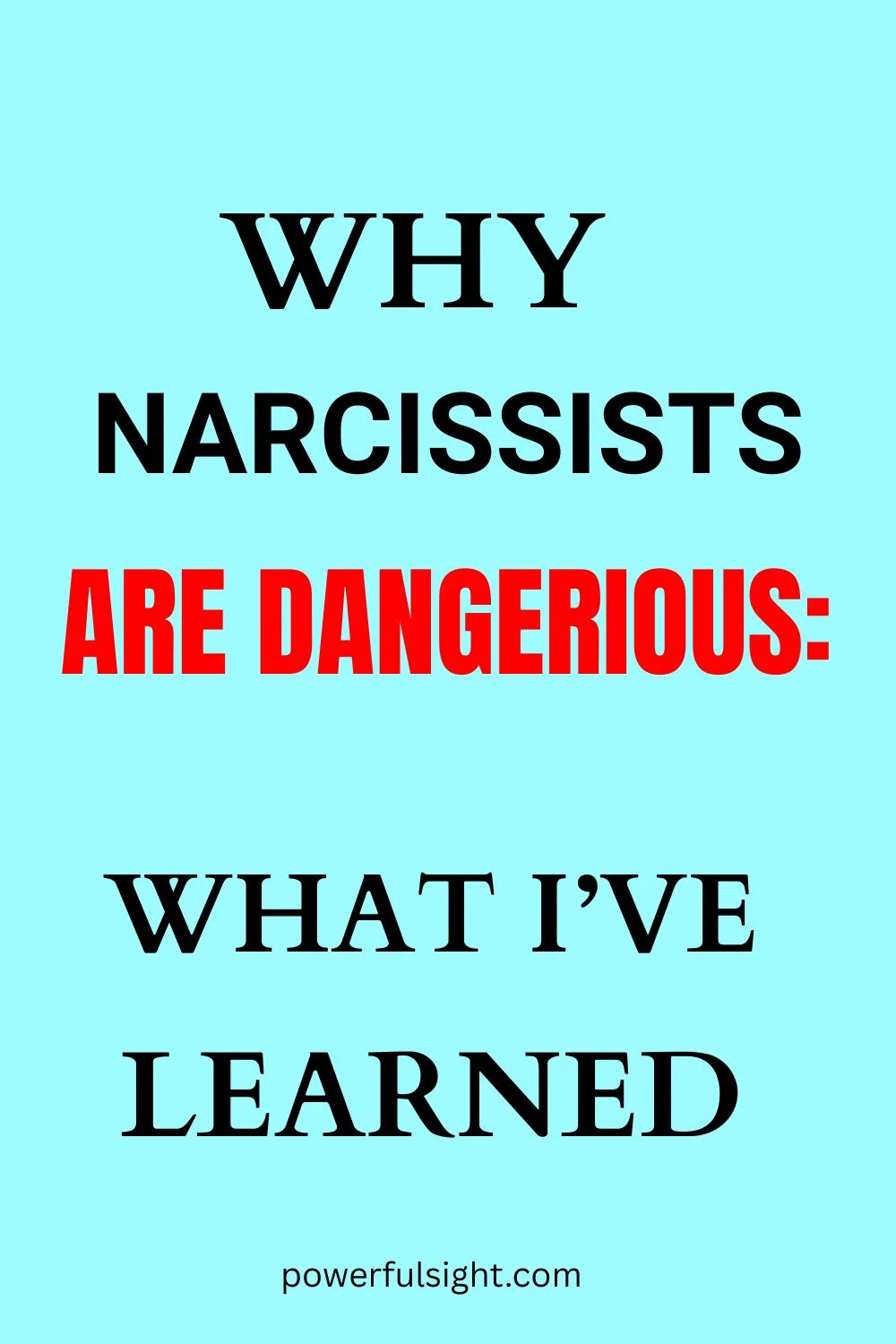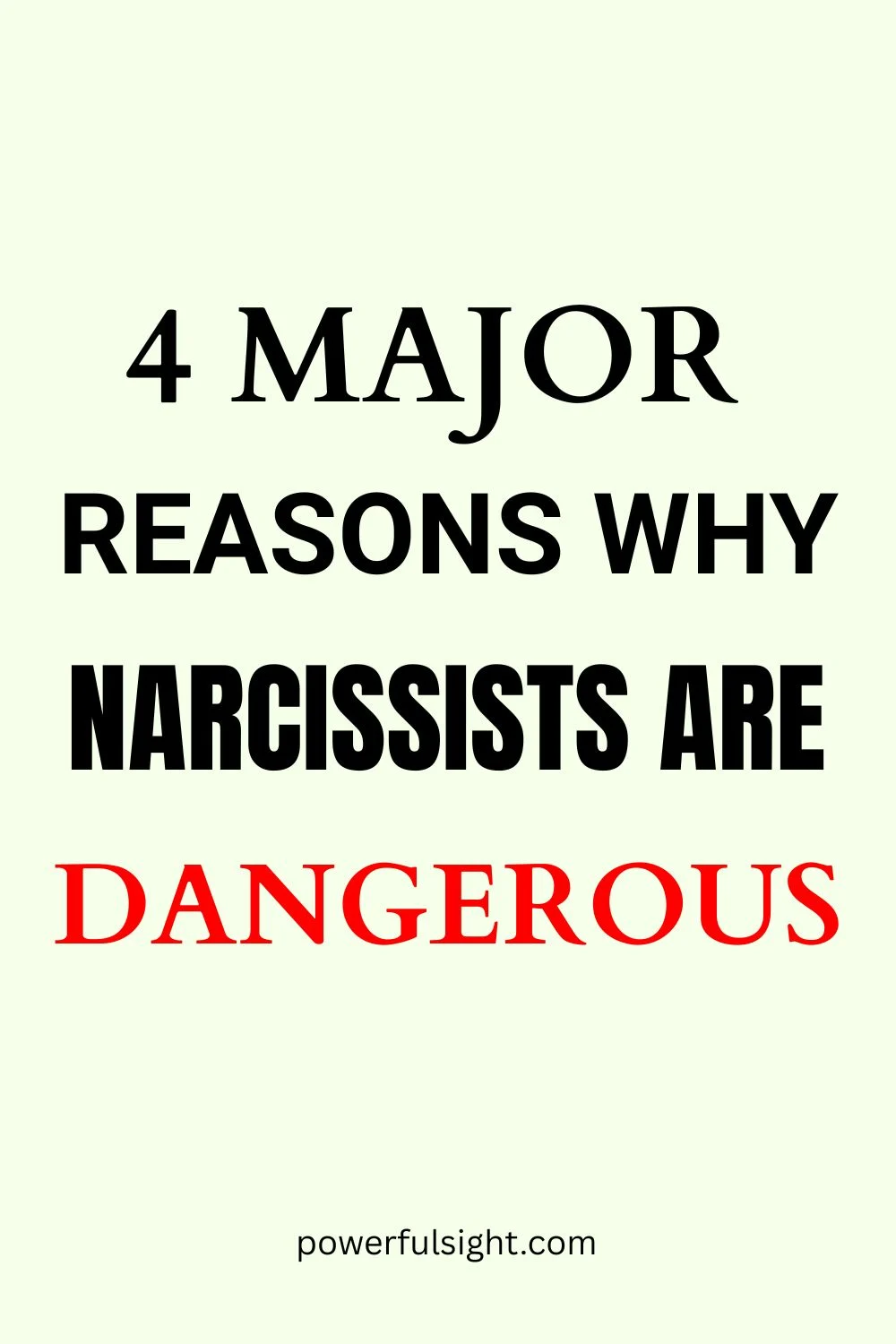When I first started digging into the topic of narcissism, I was struck by how complicated it really is. Narcissism isn’t just about someone being full of themselves — it’s a deep personality trait that centers around an extreme focus on self and a constant craving for admiration.
Psychologically speaking, it’s considered a serious disorder when it causes real problems in someone’s life, like relationship issues, work struggles, or emotional distress.
In fact, the Diagnostic and Statistical Manual of Mental Disorders (DSM-5) lays out clear criteria for Narcissistic Personality Disorder (NPD), highlighting traits like grandiosity, a huge sense of entitlement, and a major lack of empathy for others.
Understanding these traits really helped me see why narcissists can be so dangerous, not just emotionally, but sometimes even physically.
Save the pin for later

How Narcissists Exploit and Drain Others
One thing that stands out about narcissists is how inflated their self-image usually is. They often believe they’re better than everyone else, which leads to using and manipulating the people around them just to get their needs met.
In my experience learning about them, it’s clear that being close to a narcissist is emotionally exhausting. Because they need constant validation, they end up draining the people around them without offering much in return. Their inability to genuinely care about anyone else’s feelings creates toxic, one-sided relationships.
Related: How to Deal with a Narcissistic Parent
Where Narcissism Comes From
I’ve learned that narcissism usually develops from a mix of factors like genetics, upbringing, and even societal influences. Some people build up narcissistic traits as a defense mechanism — a way to protect a fragile inner self-esteem.
But even if it’s rooted in insecurity, the way it shows up — arrogance, manipulation, an exaggerated sense of achievement — ends up being really damaging to their relationships. Genuine respect and understanding usually go out the window.
Related: 5 Traits Daughters of Narcissistic Mothers Have in Common

The Emotional Toll of Being Around a Narcissist
Relationships with narcissists often follow a painful cycle: emotional highs followed by brutal lows. From what I’ve seen and read, being around a narcissist can leave you feeling confused, full of self-doubt, and questioning your own worth.
That’s why recognizing these patterns is so important. It’s the first step in protecting your emotional health and understanding when it’s time to step back or walk away.
Related; Why Narcissists Hate Their Partners
The Tactics Narcissists Use to Control You
One thing that really opened my eyes was how good narcissists are at emotional manipulation. They use tactics like
- Gaslighting — where they twist your reality and make you question your own memory or judgment.
- Guilt-tripping — making you feel like their needs are more important than yours.
- Love-bombing — showering you with affection early on to hook you emotionally, only to later withdraw it without warning.
Each of these tactics is designed to mess with your emotions and keep you under their control. And sadly, the impact can last long after the relationship ends.
How Their Lack of Empathy Hurts Everyone Around Them
One thing I find especially heartbreaking about narcissists is their lack of empathy. They just don’t connect with other people’s emotions in a real way.
In relationships — whether romantic, family, or even at work — this can lead to emotional neglect, exploitation, and deep feelings of loneliness for the people involved. Narcissists often leave a trail of hurt because they prioritize their needs without even thinking about how they affect others.

The Destructive Relationship Cycle
In my experience researching this, narcissistic relationships often follow a damaging pattern:
- Idealization — They put you on a pedestal.
- Devaluation — Suddenly, you can’t do anything right.
- Discard — They leave you feeling broken, confused, and empty.
It’s a cycle that can destroy your self-esteem if you’re not aware of what’s happening.
Why Narcissists Are Dangerous
1. Narcissists Create Drama to Stay in Control
One thing I’ve noticed is that narcissists seem to thrive on chaos. They often stir up conflict just to stay in control of the situation.
They might play the victim to get sympathy, stir up jealousy to create competition, or twist the truth to make people doubt each other. All of it is about keeping the spotlight on themselves and maintaining power over those around them.
2. They use Triangulation as their Secret Weapon
Another disturbing tactic narcissists use is something called triangulation.
Basically, they bring a third person into the mix to create jealousy, rivalry, or insecurity. I’ve seen how this tactic can make people feel isolated, confused, and desperate for the narcissist’s approval — which is exactly what they want.
Recognizing triangulation for what it is can help you break free from this manipulative dynamic.
3. The Long-Term Impact on Mental Health
If you’ve ever been close to a narcissist, you probably know firsthand how much it can mess with your mental health.
Anxiety, depression, and low self-esteem — these are all common side effects. I’ve learned that the constant manipulation and emotional abuse can leave deep scars that take years to fully heal.
4. The Risk of Escalation
Another thing I think people really need to be aware of is how narcissistic behavior can escalate.
At first, it might just be emotional manipulation. But over time, especially if they feel threatened or criticized, it can lead to verbal abuse — and in some cases, even physical aggression. Recognizing the early warning signs and setting firm boundaries is absolutely critical for your safety.
How to Recognize a Narcissist
Spotting a narcissist early can save you a lot of heartache. Here are some of the biggest red flags I’ve learned to watch out for:
- They constantly need praise and admiration.
- They show very little genuine empathy.
- They manipulate conversations to keep the focus on themselves.
- They belittle or dismiss others’ feelings.
- Their relationships are often short-lived or chaotic.
By staying aware of these signs, you can better protect yourself from getting pulled into their toxic web.
Final Thoughts
Learning about narcissism has completely changed the way I look at relationships. Knowing why narcissists are dangerous — and how their behavior plays out — makes it easier to spot the signs early and protect your emotional well-being.
Trust me: recognizing the patterns can make all the difference.
Save the pin for later

- 100 Short Inspirational Quotes for January - 26/12/2025
- 12 Ways To Detox Your Life In 2026 - 26/12/2025
- How To Look Good Everyday - 26/12/2025
